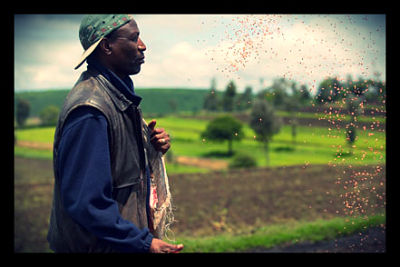Zambian Farmers in Need of a Loan

Zambian farmers have had to deal with droughts, floods, and extreme weather over the past 10 years. In 2005-2006, a drought left over 1 million Zambians without enough maize for nine months. The next year a flash flood displaced nearly half a million people. Zambian farmers are losing when it comes to climate change, and they are in need of a grant if they wish to overcome these extreme climates.
“The uneven weather pattern in the valley is making it very difficult for most of us to cultivate crops here,” said Fred Milambo, a 53-year-old rice farmer. “You cannot know what a single season will bring.”
This uncertainty may come to an end thanks to the Climate Investment Funds, which is supporting a new project for Zambian farmers. The CIF will grant Zambia $31 million over six-years as well as a loan of $5 million to the Zambian government.
This new project aims to reduce the negative impacts of climate change on agriculture. One way they will do this is by gathering and collecting data about the weather and sending it out to local farmers and communities. The project will set up a free mobile-phone text messaging system. This program allows local people to send in texts about real-time weather conditions.
“This freeware will allow the ‘focal point’ team to geo-reference and map out the origin of the text messages, so they could quickly find out, for example, the extent of floods or emergency needs,” CIF lead operations officer in Zambia, Sofia Bettencourt, said.
In the long term, this data collected will allow farmers to have a better understanding of the shifting weather patterns. “The information will allow communities to make better decisions on how to manage their livelihood. It will help them plan better in advance for the forthcoming season – like planting earlier or later – depending on the forecast,” Bettencourt said.
The CIF program will also focus on building canals to widen the Zambezi valley network. These canals will improve transportation as well as irrigation for farm fields. By maximizing water usage, farmers will increase crop yields and not be so reliant on the uneven weather. “If the local farmers are provided with information and the canals are rehabilitated, it will be easy for the farmers here to irrigate the fields using those canals, as most depend on rain-fed agriculture, and in the drought season it is difficult for them,” a government planner in Western Province, Kafula Chisanga, stated.
– Catherine Ulrich
Source: Alternet, Climate Investment Funds
Photo: SABMiller
